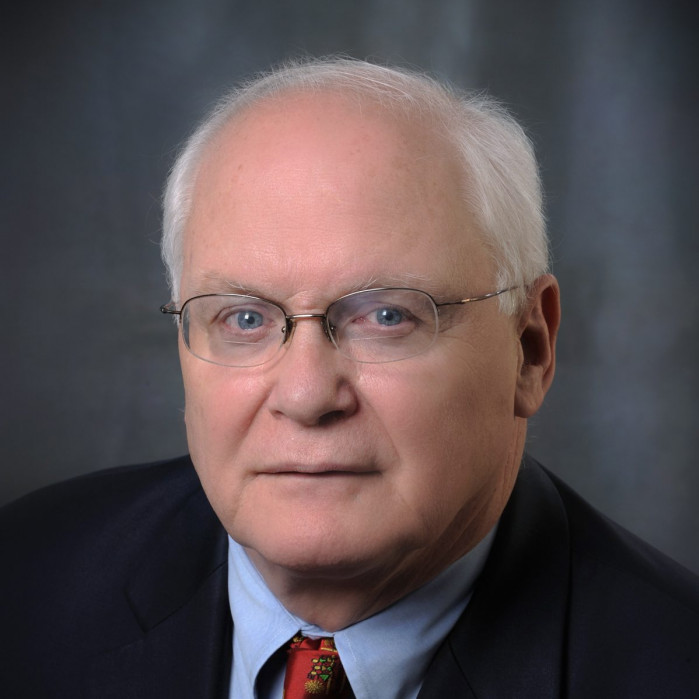When he took over the old Department of Health and Rehabilitative Services, Jim Towey met with his headquarters staff under the trees at Winewood and pointed at a nearby parked car.
Running the state of Florida’s services for poor people, Towey told HRS employees, is like trying to drive that car to Miami with just one tank of gas. It can’t be done, he said, but they had to try – to get as far as possible and accomplish what they could along the way. Giving up was not an option.
Towey, now president of Ave Maria University, wrote a cover blurb for “A Dedicated Life,” the interesting new memoir of retired Miami Herald publisher David Lawrence Jr. Genetically incapable of actually retiring, Lawrence now heads The Children’s Movement, turning management and organizing skills he once used to make money for a giant newspaper company toward improving the lives of millions of children.
“This book brims with inspiration and optimism,” Towey wrote. “Dave Lawrence’s extraordinary life challenges us to make his lifelong devotion to justice, fairness, and children’s rights our own.”
From Ben Hecht’s “Gaily, Gaily,” a rollicking remembrance of Chicago newspapering 100 years ago, to last year’s to last year’s “Unbelievable,” Katy Tur’s tales of covering the Donald Trump campaign, journalists tend to boast a bit in recounting their adventures.
But in these 200 pages, Lawrence lays out a modest account of a career spanning most of a half-century – starting as a $20-a-week kid setting headlines and cleaning up hot lead spills in the composing room of the old Sarasota News to the executive suites of papers in Charlotte, Philadelphia, Detroit and Miami.
“Newspapering as a career of justice – righting wrongs – came to be my dream. There were lessons to be learned everywhere,” he writes of the earliest days. Lawrence escaped from the University of Florida and started at the St. Petersburg Times (now Tampa Bay Times), thanks to an urban sociology professor who presciently gave him a D-minus-minus, with a note, “I’m only giving you this because I think you will amount to something.”
Lawrence could have made $10 more per week if he’d taken a late offer in Atlanta, but his father advised him to keep his word to the Times. The moral lessons – his deep religious faith, strong family, commitment to others beyond self – illuminate the pages of his memoir. He even ends each chapter with a little lesson and starts the next one with quotations from heavy thinkers ranging from Thomas Jefferson to Dr. Seuss.
The popular stereotype of the hard-bitten old editor who’s seen it all and is unaffected by anything doesn’t fit Lawrence. He’s not naïve – doesn’t expect the Republican Legislature to suddenly change its priorities from tax breaks to children’s needs – but he remains preternaturally encouraged by what his Children’s Movement has been able to do in focusing attention on those needs.
“You’re not in this for the money. You're doing this for the experience, for the training, for the opportunity,” he writes of his formative years in newspapering. “The best people, then as now, entered journalism as idealists. They knew they were being paid for being skeptical but not cynical; the best people never strayed into cynicism."
Lawrence sees much still to be done, in a state with a quarter-million children still lacking health insurance. On the bright side, Florida is one of only four states with a pre-kindergarten program for all four-year-olds, and The Children’s Movement is working to persuade people that what’s good for the youngest, most vulnerable Floridians is good for all of us.
As the civil rights movement wasn’t only about black people and the women’s movement didn’t benefit just half the population, Lawrence sees providing a safe, nurturing environment for all children to be good for all of us.
“We’ve always had a moral core in this country,” he said in an interview Wednesday. “The greatest presidents had a strong moral core. When we talk about American exceptionalism, it means we are a people who want to be good, want to be moral, believe in equity and so forth.”
And in the current political climate? Well, we’ve had tough times before.
“Am I pained by the lack of that moral core coming from certain places in Washington? Yes, I’m deeply pained,” he said. “Am I optimistic? Absolutely.
“The moral core of this country is what makes us special and we’re the most generous country in the world. We have made progress, but we still have a long way to go.”


